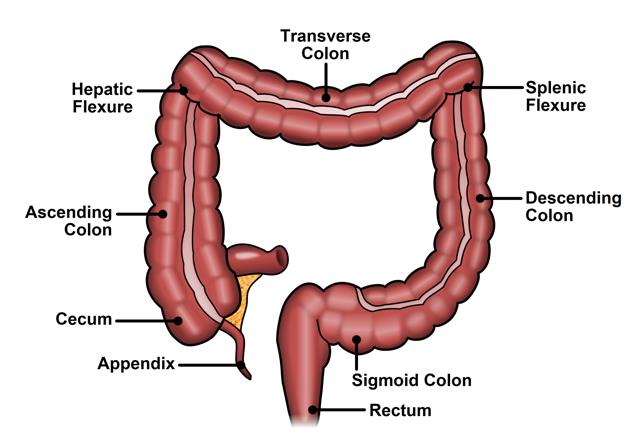Colorectal cancer, encompassing both colon and rectal cancer, has traditionally been considered a disease affecting older adults. However, in recent decades, the incidence of colon cancer in young adults has been rising at an alarming rate. While the majority of cases still occur in individuals over 50, data from the American Cancer Society indicate that younger populations are increasingly at risk.
According to recent statistics, 1 in 5 colorectal cancer cases in 2019 occurred in individuals under 55, compared to just 1 in 10 in 1995. This shift underscores the need for increased awareness, early detection, and lifestyle modifications to combat the growing prevalence of this life-threatening disease.

Understanding Colon Cancer in Young Adults
Why Is Colon Cancer Rising in Younger Populations?
Several factors contribute to the increasing incidence of colon cancer in individuals under 50. The reasons are complex, but researchers have identified key risk factors and lifestyle influences that may be fueling this disturbing trend.
Risk Factors for Colon Cancer in Young Adults
1. Genetic and Family History
- Inherited genetic conditions like Lynch syndrome and familial adenomatous polyposis (FAP) significantly increase the risk of developing colorectal cancer at a younger age.
- A family history of colorectal or related cancers (such as endometrial cancer) also raises an individual’s susceptibility.
2. Lifestyle and Dietary Factors
- Unhealthy Diet: Diets high in processed meats, red meats, and low in fiber-rich foods have been strongly linked to increased colorectal cancer risk.
- Physical Inactivity: A sedentary lifestyle can contribute to weight gain, which is a major risk factor.
- Obesity: Young adults with obesity have a higher likelihood of developing colon cancer compared to those with a healthy weight.
- Smoking and Alcohol Consumption: Both smoking and excessive alcohol intake have been associated with increased colorectal cancer risk.
3. Underlying Health Conditions
- Inflammatory Bowel Diseases (IBD): Conditions such as Crohn’s disease and ulcerative colitis can lead to chronic inflammation in the colon, increasing the risk of cancer.
- Type 2 Diabetes: Diabetes has been linked to a higher risk of developing colorectal cancer due to insulin resistance and chronic inflammation.
Warning Signs and Symptoms of Colon Cancer
Early detection plays a crucial role in improving survival rates. However, symptoms of colon cancer in young adults are often mistaken for less serious conditions, such as irritable bowel syndrome (IBS) or hemorrhoids. Recognizing these signs can be life-saving:
- Blood in stool: Can appear as bright red streaks or dark, tarry stools.
- Changes in bowel habits: Persistent diarrhea, constipation, or a feeling of incomplete bowel movements.
- Unexplained weight loss: Losing weight without any changes in diet or physical activity.
- Fatigue: Chronic tiredness that does not improve with rest.
- Abdominal pain or cramping: Persistent discomfort in the lower abdomen.
- Bloating and gas pains: Feeling overly full or experiencing unusual bloating.
- Nausea and vomiting: Without any known cause.
If any of these symptoms persist for more than a few weeks, it is crucial to consult a healthcare provider for further evaluation.
Screening and Diagnosis of Colon Cancer in Young Adults
Unlike older adults, who are recommended to undergo routine colonoscopy screenings after age 45, there are no universal guidelines for individuals under 50 unless they have significant risk factors. However, young adults should remain proactive about their health.
Diagnostic Tools:
- Colonoscopy: The most effective screening tool for detecting polyps and early-stage colorectal cancer.
- Fecal Occult Blood Test (FOBT): Detects hidden blood in the stool, which may indicate colon cancer.
- CT Colonography (Virtual Colonoscopy): Uses imaging to identify abnormalities in the colon.
- Genetic Testing: Recommended for individuals with a strong family history of colorectal cancer.
Treatment Options for Colon Cancer in Young Adults
The treatment of colorectal cancer depends on the stage of the disease at diagnosis. Fortunately, when detected early, colon cancer is highly treatable.
Common Treatment Methods:
- Surgery: The primary treatment for localized colorectal cancer, involving the removal of the tumor or a section of the colon.
- Chemotherapy: Used for advanced stages or when the cancer has spread to lymph nodes.
- Radiation Therapy: Primarily used for rectal cancer to shrink tumors before surgery.
- Targeted Therapy and Immunotherapy: Emerging treatments that target specific genetic mutations in cancer cells.
Improving Awareness and Prevention
To combat the rising incidence of colon cancer in young adults, greater emphasis must be placed on education, lifestyle changes, and proactive healthcare.
Preventive Measures:
- Adopting a Healthy Diet: Increase fiber intake, reduce red meat consumption, and incorporate more fruits and vegetables.
- Regular Exercise: Engage in at least 150 minutes of moderate physical activity weekly.
- Avoid Smoking and Excessive Alcohol: Reducing these risk factors can significantly lower cancer risk.
- Routine Health Checkups: Even without symptoms, individuals with a family history should seek medical advice regarding early screening.
FAQs:
1. Why is colon cancer increasing in young adults?
The rise is attributed to lifestyle changes, dietary habits, obesity, smoking, alcohol use, and genetic predispositions.
2. What are the early warning signs of colon cancer?
Common symptoms include blood in the stool, changes in bowel habits, unexplained weight loss, fatigue, and abdominal pain.
3. At what age should young adults start screening for colon cancer?
Routine screening starts at age 45, but individuals with a family history or risk factors should consult their doctor about earlier screenings.
4. Is colon cancer treatable in young adults?
Yes, if detected early, colon cancer is highly treatable through surgery, chemotherapy, radiation, and targeted therapies.
5. What lifestyle changes can help prevent colon cancer?
Eating a fiber-rich diet, regular exercise, avoiding smoking and alcohol, and maintaining a healthy weight can significantly lower risk.




